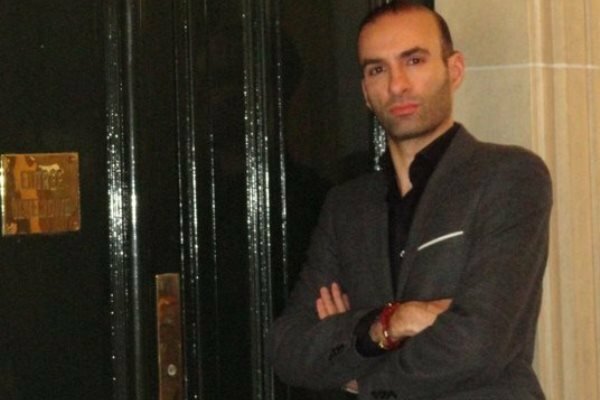TEHRAN - Professor Arshin Adib-Moghaddam, Chair of the Centre for Iranian Studies at the London Middle East Institute believes that “The chief diplomat of the current administration, Michael Pompeo, continues to pursue an essentially ideological foreign policy, that is driven by a distinctively irrational approach to world politics in general and Iran in particular.”
Professor in Global Thought and Comparative Philosophies and Chair of the Centre for Iranian Studies at the London Middle East Institute, also adds that “The government of Donald Trump has seriously deteriorated the image of the country and by extension its diplomatic power, exactly because of its severe human rights abuses at home and aggressiveness abroad.”
Here is the full text of the interview:
Q: What is your assessment of John Bolton's dismissal? Will the militant faction become a minority with this layoff?
A: One thing is for sure: John Bolton will never again occupy a senior position in government. It says a lot, that he was considered too radical, even by President Trump. The future of Bolton will be at some right-wing think tank. As for the consequences for U.S. foreign policy: The chief diplomat of the current administration, Michael Pompeo, continues to pursue an essentially ideological foreign policy, that is driven by a distinctively irrational approach to world politics in general, and Iran in particular. The government of Donald Trump has seriously deteriorated the image of the country and by extension its diplomatic power, exactly because of its severe human rights abuses at home and aggressiveness abroad.
Q: What effect will Bolton's dismissal have on U.S. foreign policy toward Iran?
A: The effects will be marginal, as some sections of the Iranian state continue to endanger the national security of the country by blocking necessary human rights reforms. National security is defined by a largely symbiotic and integrative relationship between state and society. This is not the case in Iran because some segments of the state continue to disregard the rights of Iranian citizens. This is the real national security threat to the country. If we would spend more time deliberating about these factors that have negatively affected Iran's standing in the world and hence its ability to project diplomatic power, it would be that much less important what the U.S. government does.
Q: It was speculated that Trump would be on a diplomatic course with Iran after dismissal of Bolton. On the other hand, Yemeni attacks on Aramco have prompted Washington to declare that it is ready to fight Iran. What is your assessment of this situation?
A: Diplomacy that is effective requires strategic acumen that is steeped in a sophisticated political culture that the current administration in the United States simply lacks. The situation is as bad as it has been for the people of this region for decades now. This is the only area in the world where there continues to be endemic civil wars, structural insecurities etc. This is partially because of external interferences, but primarily because of the lack of democratic accountability of the regional states. The current situation will pass. There will be no war, more talk about a potential encounter between Iran and the United States, but in the end all of this won't resolve the real problem of this region, that is authoritarianism, and the lack of citizens’ rights.
Q: Since Pompeo has a Bolton-like approach, can Trump change Pompeo as well?
A: History shows that President such as Trump get socialized in office, and that they pursue less antagonistic policies when they get re-elected. This is likely to be the case with Donald Trump if he gets a second vote. The fact remains, that the personnel of this administration is unlikely to engage Iran in a meaningful way. Any dialogue, however, will de-escalate the current situation which is intolerable for all the citizens of this troubled region.
Q: Given the change of a person like Bolton, will Israeli policies in the U.S. State Department fade or shift?
A: These policies are not dependent on personnel. They are constituted by a vast array of institutional and politico-cultural constellations as I set out in my forthcoming study.


No comments:
Post a Comment